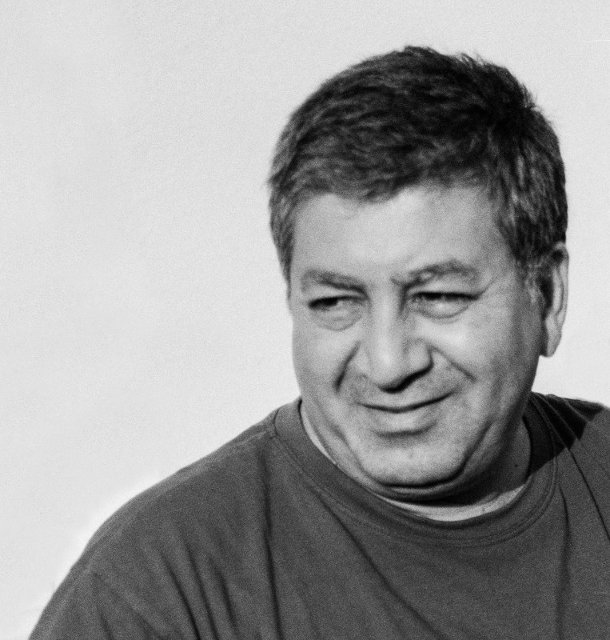RFE/RL Profile: Turkmenistan
RFE/RL correspondant Yovshan Annagurban arrived at Ashgabat International Airport early one October morning in 1997 planning to fly to Prague to participate in a journalism training seminar at RFE/RL’s headquarters. Instead he was arrested and imprisoned for 13 days, only to be released after international cries of outrage. Authorities had “found” a disk in his bag containing Turkmen military secrets. It had been planted.
Turkmenistan in the 1990s was governed by President Saparmurat Niyazov, the self-proclaimed Turkmenbashi the Great, President-For-Life. Since his death in 2006, the country has been ruled by President Gurbanguly Berdymukhammedov, and life for journalists has not tangibly improved.
A Freedom House report released this winter lists Turkmenistan among the 17 “least free” countries in the world. Human Rights Watch wrote in their World Report 2009 that Turkmenistan “remains one of the most repressive and authoritarian countries in the world,” citing “draconian” restrictions on personal freedoms. Last year Reporters Without Borders (RSF) named President Berdymukhammedov to its list of “Predators of Press Freedom.” It ranks Turkmenistan 171 out of 173 countries in its 2008 Press Freedom Index, and recently declared it one of 13 worldwide “Internet Enemies.”
As the only independent Turkmen-language news and information broadcaster in the country, RFE/RL’s status is tenuous. We have no bureau in the country and our journalists, who aren’t accredited, work without recognized rights of access to government officials or information. They suffer interrogations, surveillence, detentions, travel restrictions, uncertain access to healthcare and risks to their own personal security and that of their families.
Dovletmurat Yazguliev, a RFE/RL correspondent, was summoned along with his wife for questioning last December. Local officials and security agents reportedly told him to sever his ties with the organization or his life would become “very difficult.” Yazguliev fears imprisonment if he continues reporting.
Osman Hallyev, a longtime correspondent, covered Turkmenistan’s December 2008 parliamentary elections. In early January of this year, he received a series of death threats relating to his involvement with RFE/RL. His son, son-in-law and daughter-in-law were all fired from their jobs and he was placed under heavy surveillance. In addition, his phone lines were cut and his internet access was curtailed, leading him to report earlier this year that he felt as though he was under house arrest and feared detention by state security forces.
In a reprise of the most notorious Soviet methods, security agents forcibly confined Sazak Durdymuradov to a psychiatric hospital for two weeks last June. Durdymuradov was a high-school history teacher and a frequent contributor to RFE/RL programs who had recently spoken on the air about Turkmenistan’s planned constitutional reforms. He reportedly told his wife that he had been tortured with electroshock for refusing to sign a letter promising to cease his work for the radio.
Boinuzin Psychiatric Clinic, the facility where Durdymuradov was detained, is known as the ‘Turkmen Gulag,’ a holding pen for political prisoners that became infamous under Niyazov and remains so today. Gurbandurdy Durdykuliev, a political dissident who spent 26 months there in 2006, said in a 2008 interview with RFE/RL that beatings are common, as is solitary confinement and forced medication. “Doctors want nothing but to kill [inmates],” he said.
RSF recently profiled another facility, Turkmenbashi Prison, located in the western desert, where two journalists are currently serving lengthy prison terms on charges widely viewed to be false. Cells are reported to be “filthy” and “overcrowded” while access to drinking water is nonexistent and food quality is “poor.”
RFE/RL correspondent Ogulsapar Muradova, who was charged and imprisoned in the same case in 2006, died while being held at Ovodan Depe prison under circumstances that have never been fully investigated. RSF claims that she was beaten to death.
Recent developments in the IT sector, though, may offer some Turkmen a small step out of their isolation. Internet availability is higher than ever before, with high-speed service now available. Citizens can stream online video and use programs like “Skype” to communicate with people both inside and outside the country. Websites of independent Russian-language news sites can be accessed, including RFE/RL’s own website, and email and blogs are becoming more popular.
Whether or not such developments signal meaningful change remains unclear. Press advocacy groups point out that the costs of using such technology are beyond the means of most Turkmen and, in any case, internet use is subject to surveillance and state control. Far from having enhanced access to information, RFE correspondents covering the December elections found their internet connections blocked, mobile phones cut-off and even local land lines disabled. And as Mr. Annagurban can attest, most of the country’s independent journalists still can’t go home.
Source: http://www.rferl.org/content/PressRelease/1621157.html
()
